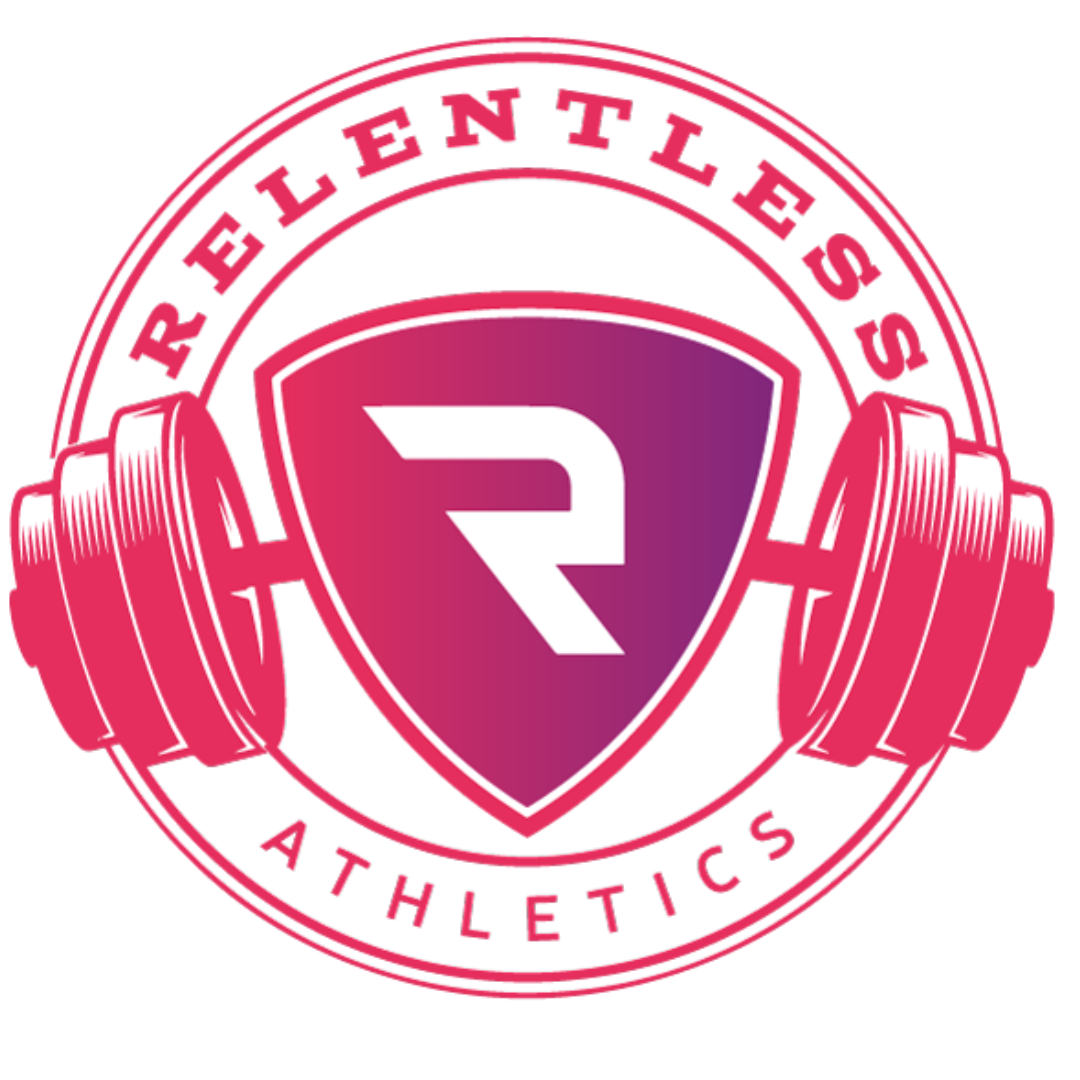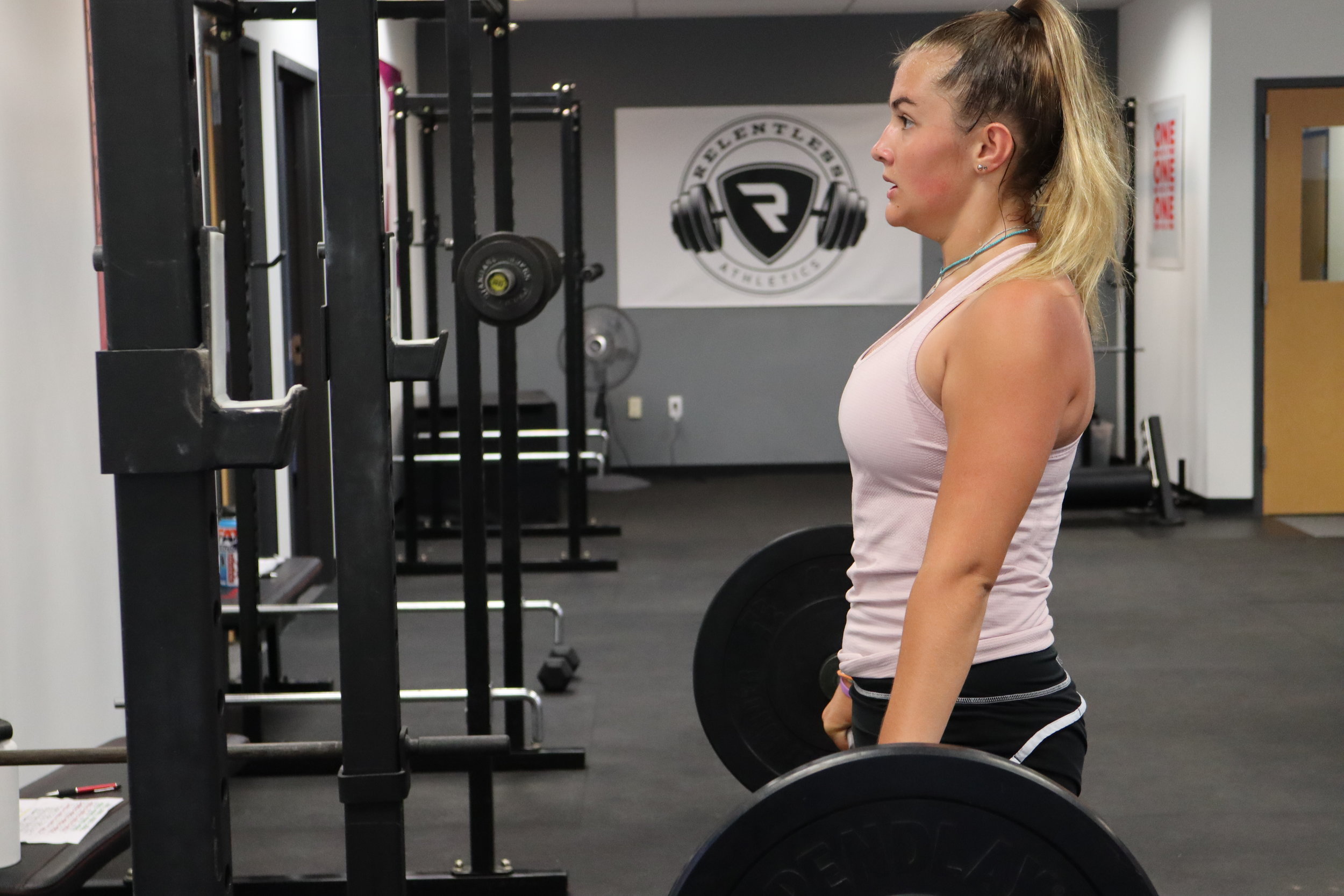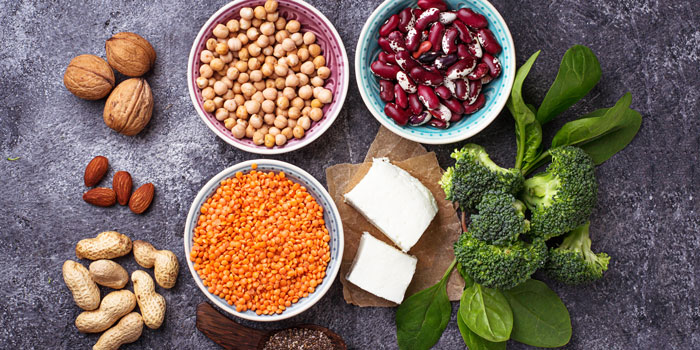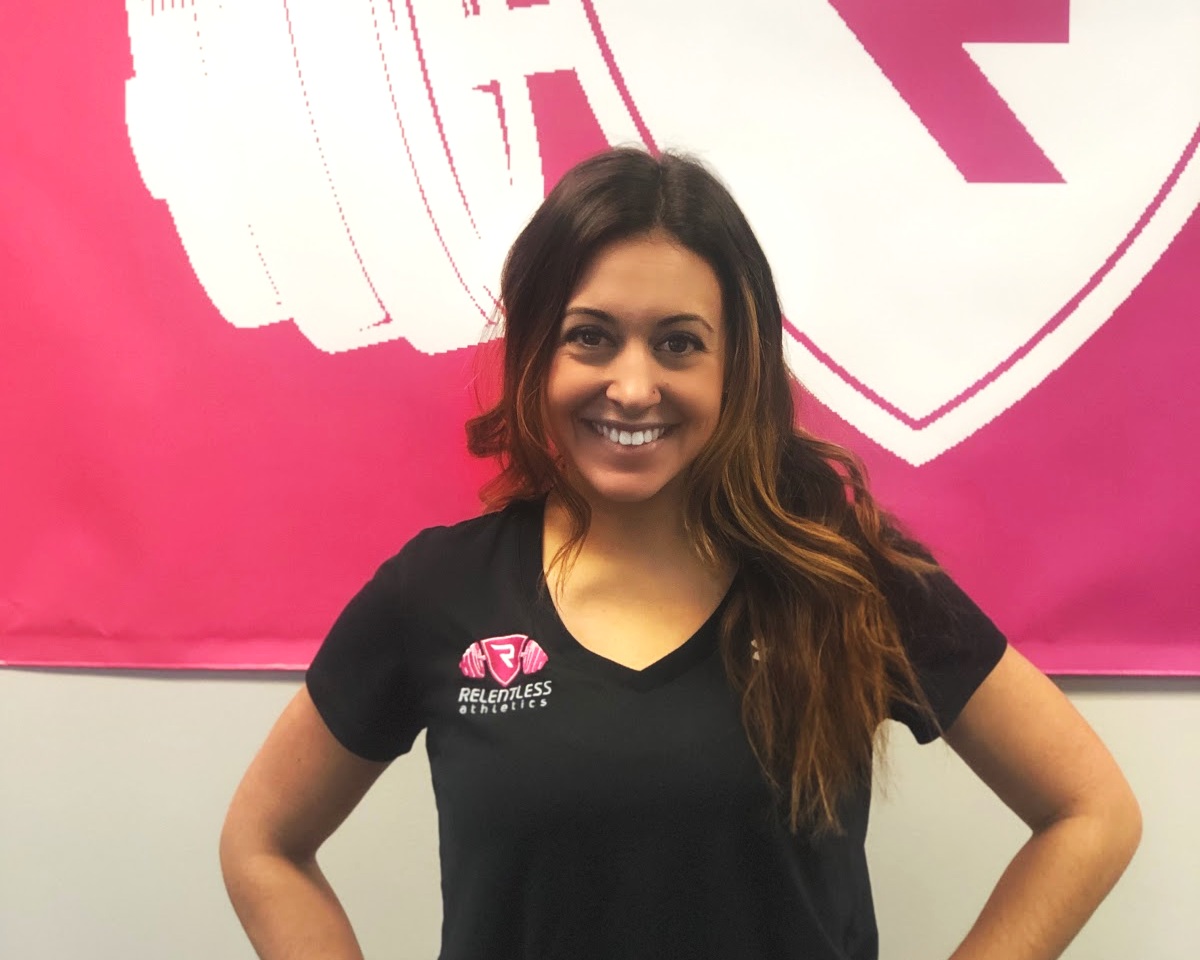Eating Vegan for the Female Athlete
Emily R Pappas, MS
Many athletes choose to follow a vegan diet for various reasons - this article does not intend to help you decide if being a vegan is right for you. Rather, this article does intend to help you understand what you need to prioritize in order to follow a vegan diet and be a high achieving (and recovering) female athlete.
Thinking about going vegan?
You aren’t alone. Vegan female athletes are on the rise.
You’ll be joining the ranks of elite athletes like
...Venus Williams, who has won four time Olympic gold medals and countless Grand Slam titles.
...Tia Blanco, professional surfer and winner of the 2015 + 2016 World Women’s Surfing Championship.
...Hannah Teter, three time Olympic gold medal-awarded snowboarder.
The first thing ANYONE thinks about when the words “vegan” and “athlete” are paired together is…
“How do you get enough protein?”
The truth is: It ISN’T easy.
Being a high-performing athlete is already difficult. Balancing nutrition, training, and recovery takes an incredible investment of time, fierce will-power, and the vision to succeed. Adding ANY type of elimination restriction to your diet compounds the difficulty you’ll face fueling your body for performance.
But, let’s be clear. This article ISN’T about whether you should or shouldn’t go vegan as an athlete.
Some athletes choose to go vegan because they have a family history of medical problems they hope the diet will help them avoid. Other choose to go vegan for ethical, political, or environmental reasons.
Regardless of your reason, what is important to understand is that WHAT you fuel your body plays a HUGE part in determining
…IF you can get those results and
…how FAST you can achieve them.
Yes, you CAN be a top performing athlete and also be vegan. BUT, just like any elimination diet, going vegan means paying considerable attention to your nutrition.
If you’re vegan- or considering a switch- here’s what you MUST know before you start.
#1: Are you getting sufficient ENERGY?
Priority #1: You MUST be consuming ENOUGH energy to meet your activity levels.
Elite vegan athletes, such as 10-time Olympic gold medalist Carl Lewis, have discovered the biggest challenge athletes face when changing to a vegan diet isn’t necessary protein...but consuming enough calories.
James Loomis, medical director of the PCRM’s Barnard Medical Center, admits that packing on calories with a vegan diet is still not easy for athletes. “Some people struggle with it,” he says. “Try eating 1,000 calories of quinoa or blueberries.”
Still, elite vegan athlete claim a variety of health benefits can be associated with the vegan diet, such as
Reduced risk of heart disease
Lower LDL (the cholesterol that clogs arteries)
Aiding Type 2 diabetes
Lower risk of cancer
Here’s the problem: We really don’t have enough data.
Until more science is available, we really only have the testimonials of a small percentage of athletes who follow a vegan diet.
Meanwhile, there is a significant amount of evidence showing this association may just be due to an overall decrease in caloric consumption since many of these diseases (Type 2 diabetes, high LDL) are related to an excessive caloric surplus.
Other nutritional studies, like this, give some real food for thought on whether the vegan diet can really provide everything an athlete needs to perform at an optimum level...especially when it comes to protein and fat.
The fact is...the majority of female athletes are NOT eating enough food to meet the energy requirements of their training.
And vegan female athletes? They are at an even HIGHER chance of under-fueling their body to meet their activity level.
Female athletes who under-eat are at a serious risk of injury, extreme fatigue, sickness, mood swings, and long term health issues like the Female Athlete Triad....
Data not only indicates that vegans consume LESS energy compared to omnivores, but their diets are
lower in protein
lower in fat
And are at risk of being deficient of essential vitamins and minerals such as calcium, B12, iron, and zinc.
Diets low in protein increase the risk of muscle loss, especially if you aren’t hitting the weight room during season.
Diets lower in fat increase the risk of under-fueling and hormonal issues leading to a disruption in the menstrual cycle
Diets deficient in certain nutrients increase the risk of extreme fatigue, irritability, sickness, and delayed recovery times.
This means vegan athletes who don’t take the time to research or work with a nutrition coach are at a serious risk of undermining not only their performance goals, but their long term health!
Vegan Female Athletes Are At HIGH Risk of Underfueling
Diets that are plant based tend to have low energy density as well as promote early satiety. This is because plants are full of fiber and water, two components that fill you up!
Diets that are high in fiber can also lead to gastrointestinal distress. This distress has been shown to decrease appetite levels and therefore total energy consumption.
It isn’t that vegan athletes are trying to run an energy deficit. Most of the time they are underfueling and don’t even know it.
To make matters worse, female athletes in general are already at HIGHER RISK for underfueling. Why? High stress, lack of nutrition education, poor sleep habits, and social pressure (we see you instagram models) ALL contribute to underfueling in the world of high performing women.
Add any type of elimination diet to that mix and you have to be EXTREMELY careful…
...ESPECIALLY if your sport is high intensity!
High intensity sports such as soccer, lacrosse, field hockey, and weightlifting all require a significant amount of energy for both PERFORMANCE as well as RECOVERY.
What happens if you are not eating ENOUGH?
Underfueling leads to a world of problems for the female athlete. If you aren’t eating enough, you’re at risk for….
1) Increased risk of developing low bone mineral density.
What doesn’t this mean?
Decreased Bone Mineral Density = Increased Chance of Injury. Yikes!
2) Low energy intake also compromises your immune system.
More sickness means less time from training and competition. Again, not the ideal scenario for a female looking to perform!
3) Decrease in body WEIGHT
But remember, when you see the number on the scale drop, this does not indicate a drop in FAT but just a drop in MASS.
Females who drop weight fast increase their chances for muscle loss (ESPECIALLY if they are not strength training!). Losing muscle reduces your strength. Lower strength leads to decreased training capacity and once again, an increased risk of injury.
When you underfuel, the problems just snowball!
But, the question isn’t just about quantity of fuel. It’s also about the quality….
Remember, as an athlete your body prefers carbohydrates as a source of FAST energy during performance and fats as a source of SLOWER energy to aid in recovery and satiation.
Proteins are better used by the body as a BUILDING BLOCK.
Lacking building blocks creates a scenario that favors muscle loss, strength decreases, and skyrocketing rates of injury.
That’s why the biggest question I’m asked by athletes considering a vegan diet is...
#2: Can you get enough PROTEIN as a vegan athlete?
Protein is VITAL to athletic performance. It serves us in two ways, it
Acts as insurance to prevent muscle break down
AND acts as a substrate for muscle synthesis
During your season, your goal is to maintain a POSITIVE balance between muscle protein break down and muscle protein synthesis.
When you eat more protein than you are breaking down, you are on the road to recovery and adaptation!
When you eat LESS protein than your body breaks down, you are on the road to decreased performance and increased injury.
As a female athlete, you need to consume MORE protein than the non-athletic population because you break down more muscle! Add strength training to the mix (you should…..), and muscle breakdown increases even more!
When you choose a vegan diet, consuming enough protein to match this breakdown rate can become a bit complicated.
Studies show vegan athletes consistently consume far LESS protein than their omnivorous and vegetarian counter parts.
Those vegan Olympic superstars we mentioned earlier? Behind the scenes, they are investing a ton of resources into making sure their protein needs are met. As a vegan athlete, it’s not as simple as just eating more peanut butter.
Why?
Most plant based proteins are INCOMPLETE and difficult to DIGEST.
In order to optimize protein intake for a vegan athlete, special attention needs to be paid to both the QUANTITY and QUALITY of protein consumed.
Which leads us back to the original question….. Can vegan athletes eat enough protein? Listen there are some AWESOME vegan athletes performing at the top of their sport. Can it work? Yes.
You CAN get enough protein as a vegan athlete. BUT the incompleteness of plant based proteins, as well as their digestibility, present another set of challenges you must consider!
How DIGESTIBLE is your plant protein?
What you eat, you don't necessarily digest and ABSORB.
Plant protein has been shown to be less digestible than animal protein.
What does this mean?
This means even if you are eating the same weight of protein from rice, peas, and hemp as you are from eggs, chicken, and beef...the amount absorbed by the body will be significantly higher from the animal vs the plant sources.
For this reason, it has been suggested that vegans need to consume MORE grams of protein to compensate for this poorer digestibility.
It breaks down to look like this:
1.4-2g per kg per day is suggested for plant based eaters
VS.
.8-1.4g per kg per day is suggest for animal protein eaters
This suggestion is even HIGHER for vegan athletes that are in an energy deficit and can range from 1.8g to 2.7g per kg per day.
How COMPLETE is your protein?
Most plant based proteins are INCOMPLETE.
This means they are missing the ESSENTIAL amino acids as well as are limited in the Branched Chain Amino Acids (BCAA) provided by their animal-based alternatives.
Your body DOES NOT produce these essential amino acids. The only way to get them is through the food you eat. And they are IMPORTANT!!!
Essential amino acids, such as LEUCINE play a HUGE role in promoting recovery and adaptation from exercise.
Omnivorous and vegetarian athletes are going to have an easier time fueling their body’s needs for these amino acids. Milk based proteins have been shown to help promote muscle protein synthesis in part due to the richness of the BCAA content. When comparing SOY protein supplement to MILK protein supplement, muscle hypertrophy is SIGNIFICANTLY better in the milk protein population most likely due to its higher amino acid composition.
How do vegans improve their BCAA and essential amino acid consumption?
This is where following a nutrition program becomes critical. It all comes down to FOOD choices.
Vegan athletes will need to consume a variety of protein sources to secure the BCAA and essential amino acids their body needs to recover and adapt.
For example, vegans can turn to
beans and legumes for LYSINE.
soy beans and lentils for LEUICINE.
And seeds, tree nuts, and chickpeas for BCAAs.
You can’t be a vegan athlete and put your nutrition on autopilot!
Many vegan athletes choose to supplement their whole food protein consumption. Options like
Soy
soy isolate
Pea
Rice
Hemp
And plant-based blends
Can be a GREAT option for those who have a hard time consuming enough protein through food alone. These plant based protein sources do help recovery and foster muscle hypertrophy (growth) as long as they are paired with resistance training.
So...do we recommend going vegan to our female athletes?
Like I said, this article isn’t meant to convince you one way or another.
Can you be successful on a vegan diet? Absolutely. But like ALL elimination diets, it takes a special amount of consideration.
As an athlete, you’ve got a LOT to juggle...and you don’t the time to become a nutritional expert while you’re pushing your limits. If your considering ANY type of elimination diet- vegan, lactose-free, etc- put in the time to do some research based on science or work with a nutrition coach to help EDUCATE you on what your body needs!
Sources
(1) Depressive Symptoms and Vegetarian Diets: Results from the Constances Cohort. Matta J, Czernichow S, Kesse-Guyot E, Hoertel N, Limosin F, Goldberg M, Zins M, Lemogne C.Nutrients. 2018 Nov 6; 10(11). Epub 2018 Nov 6.
(2) Food Products as Sources of Protein and Amino Acids-The Case of Poland. Górska-Warsewicz H, Laskowski W, Kulykovets O, Kudlińska-Chylak A, Czeczotko M, Rejman K.Nutrients. 2018 Dec 13; 10(12). Epub 2018 Dec 13.
(3) Position of the American Dietetic Association and Dietitians of Canada: Vegetarian diets. American Dietetic Association., Dietitians of Canada..J Am Diet Assoc. 2003 Jun; 103(6):748-65.
(4) The long-term health of vegetarians and vegans.Appleby PN, Key TJ.Proc Nutr Soc. 2016 Aug; 75(3):287-93. Epub 2015 Dec 28.
(5) Vegetarian, vegan diets and multiple health outcomes: A systematic review with meta-analysis of observational studies. Crit Rev Food Sci Nutr. 2017 Nov 22;57(17):3640-3649. doi: 10.1080/10408398.2016.1138447.
ABOUT THE AUTHOR
Emily holds a M.S. in Exercise Physiology from Temple University and a B.S. in Biological Sciences from Drexel University. Through this education, Emily values her ability to coach athletes with a perspective that is grounded in biomechanics and human physiology. Outside of the classroom, Emily has experience coaching and programming at the Division I Collegiate Level working as an assistant strength coach for an internship with Temple University’s Women’s Rugby team.
In addition, Emily holds her USAW Sport Performance certification and values her ability to coach athletes using “Olympic” Weightlifting. Emily is extremely passionate about the sport of Weightlifting, not only for the competitive nature of the sport, but also for the application of the lifts as a tool in the strength field. Through these lifts, Emily has been able to develop athletes that range from grade school athletes to nationally ranked athletes in sports such as lacrosse, field hockey, and weightlifting.
Emily is also an adjunct at Temple University, instructing a course on the development of female athletes.




